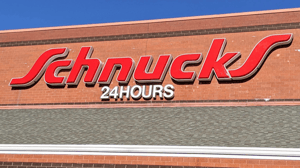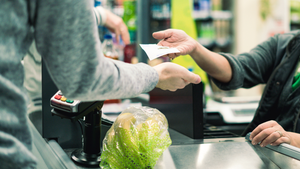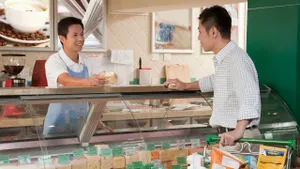Fresh RFID Tags Reusable: Study
RFID tags designed for a single use were found to be capable of functioning in multiple trips through the produce supply chain on containers, without any deterioration in performance, according to a new study. The two-year study, sponsored by the Reusable Packaging Association (RPA), demonstrated that the same RFID tags could not only be used to track the location of reusable plastic
July 20, 2009
MICHAEL GARRY
ARLINGTON, Va. — RFID tags designed for a single use were found to be capable of functioning in multiple trips through the produce supply chain on containers, without any deterioration in performance, according to a new study.
The two-year study, sponsored by the Reusable Packaging Association (RPA) here, demonstrated that the same RFID tags could not only be used to track the location of reusable plastic containers holding lettuce, apples, peppers and other produce, but could do so repeatedly without being replaced, thereby enhancing the ROI equation for RFID technology. The tags, containing electronic product code (EPC) chips with a sizable memory, could be relabeled electronically after each trip.
In the study, thousands of plastic containers, each with an RFID tag identifying the container and the product it held, were used by three produce suppliers — Frontera Produce, Stemilt and Tanimura & Antle. The produce containers were moved from the fields through the supply chain to a Wal-Mart Stores' distribution center in Cleburne, Texas, and on to 80 Wal-Mart stores, according to Michael McCartney, principal, QLM Consulting, Sausalito, Calif., which managed the study. Wal-Mart did not respond to a request for comment.
The tagged containers completed two round trips through the supply chain over a seven-month period that ended last December, which followed laboratory testing of the physical endurance and readability of the tags for more than a year. The tags used in the study were the same EPC-compliant, Gen 2 RFID tags that have been used by Wal-Mart in its long-running RFID program and cost about 10 cents each, said McCartney.
Last year, Tanimura & Antle said it would ship about 500 RFID-tagged reusable containers of cauliflower per week to Wal-Mart in the field test.
Other study participants included reusable container makers Georgia-Pacific and IFCO Systems; RFID technology providers Alien Technology, Avery Dennison, Impinj and UPM Raflatac; and Michigan State University School of Packaging, The Kennedy Group and California State Polytechnic University.
During field testing, three different tags — from Alien Technology, UPM and Avery Dennison — underwent extreme changes in temperature from over 100 degrees Fahrenheit in the field to 32 F in cold storage and over 170 F in the sanitation cycle. The tags were tested in several positions on the containers, but the “bottom-center” position was considered optimal, said Jerry Welcome, president, RPA.
Despite the harsh conditions, the RFID tags performed well. The study found that tags on 109 of 110 collapsible containers could be repeatedly read with 100% accuracy within three seconds — the time taken by the forklift driver to move the containers at a safe speed through an RFID dock portal. “The only time the tags didn't perform was when they were physically damaged,” said McCartney. The tags were read at four locations — the container service center, grower/shipper facility, Wal-Mart DC and Wal-Mart stores.
Though the tags went through only two complete cycles in the supply chain, their performance suggests they could be used at least “20 to 30 times” up to “hundreds of times,” said McCartney, depending on how they were encapsulated. The test tags were encapsulated in plastic film.
In addition to demonstrating the reusability of the tags, the study reflected the findings of the other trials showing how RFID can help retailers and suppliers “manage their supply chain better,” said Welcome. “It lets them know what's in the warehouse, and how long they've had it.”
The technology is especially helpful with perishables that have a limited shelf life, noted McCartney. “Retailers can know how close to their best-use date a product is and put the freshest products out for consumption.”
The technology would also allow recalls to be executed more easily, said Welcome. “Products can be tracked from the field to the store to the shelf, so retailers can pull just those units, rather than everything, as in the spinach recall.”
“You know in seconds where everything is, not days, weeks or months,” McCartney added.
Welcome said the results of the test could support industry initiatives like the Produce Traceability Initiative as well as expected government mandates to improve the traceability of fresh products. For example, the RFID tags could hold the global trade item number (GTIN), lot number and harvest/pack date required by the PTI, as well as other data such as best-if-used-by date.
About the Author
You May Also Like






